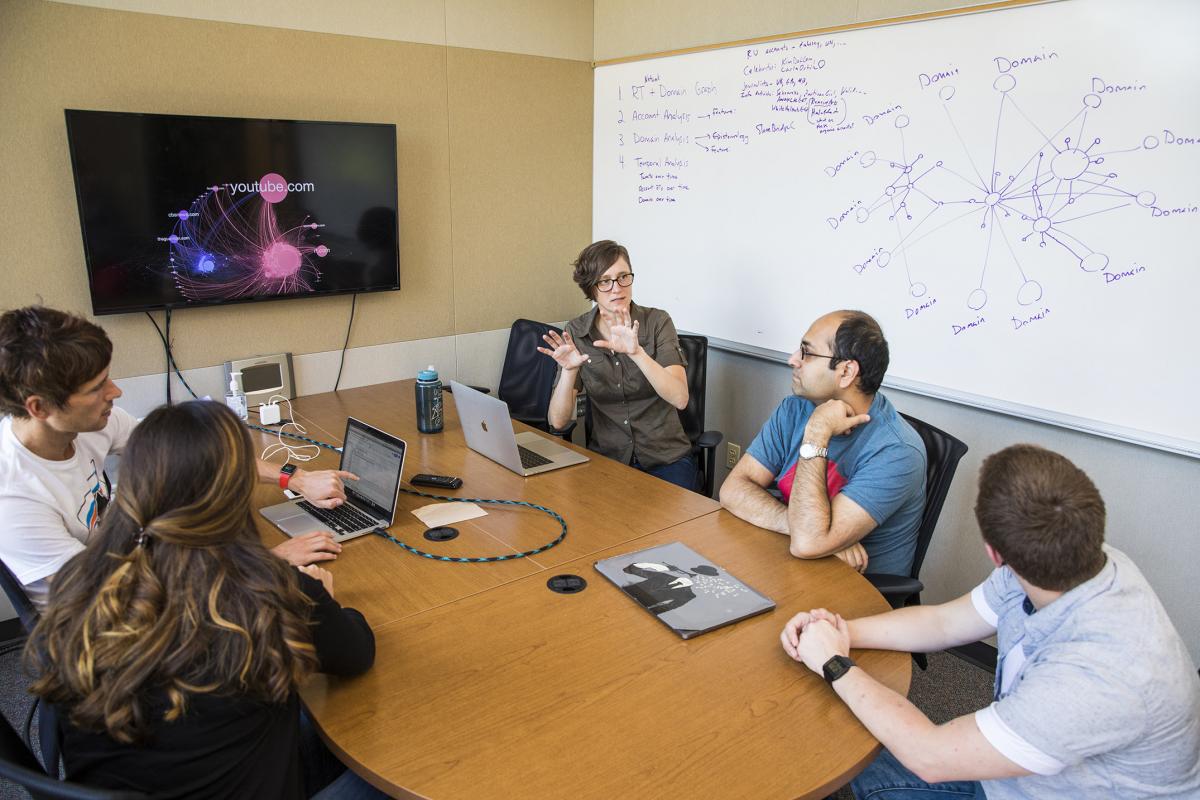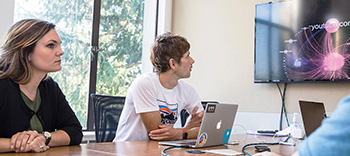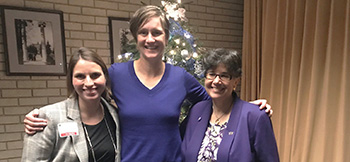Kate Starbird, Associate Professor in HCDE, is a Co-Principal Investigator at the new Center for an Informed Public.

Today’s information landscape has created a rapid and dramatic shift in the ways people produce, consume, and share news and participate in public discourse. While digital and social media enable new forms of engagement and bring diverse voices to the conversation, they also create space for misinformation and disinformation to spread.
A growing body of research is aimed at studying how the modern information landscape is shifting, but more needs to be understood about how this evolution is affecting our society.
Thanks to a $5 million grant from the John S. and James L. Knight Foundation, the University of Washington is establishing the Center for an Informed Public — a new cross-disciplinary research center focused on resisting strategic misinformation, promoting an informed society, and strengthening democratic discourse.
Knight Foundation’s support at the University of Washington is part of a $50 million commitment at 11 American universities and research institutions to develop a new field of research around technology’s impact on democracy. The center is also funded by a $600,000 award from the William and Flora Hewlett Foundation. It is part of the Hewlett Foundation’s $10 million effort to examine and combat digital disinformation’s impact on U.S. democracy and elections, announced in 2018.
“Our society is facing growing challenges related to misinformation, disinformation, and other strategic manipulation of information spaces,” said Kate Starbird, Associate Professor in HCDE and one of the Co-Principal Investigators of the new Center. “Here at UW, we are thrilled to be on the ground floor of the creation of a new, interdisciplinary field to better understand and address these challenges — to learn more about how and why we are vulnerable and to develop strategies for better defending ourselves.”
The center, housed in the Information School, brings together researchers and stakeholders from across the University. Starbird is one of five founding Principal Investigators. Associate Professor Jevin West from the Information School is the inaugural director, and other Co-Principal Investigators are Emma Spiro and Chris Coward from the iSchool, and Ryan Calo from the School of Law.
“Disinformation is an attack on the common ground that we need to share in order to govern ourselves...the solution is not to disengage, it's to learn how to better engage. ” –KATE STARBIRD, HCDE ASSOCIATE PROFESSOR
The infrastructure of the new center will support projects and collaborations aimed at developing solutions in the areas of education, outreach, policy, and technology design.
Starbird directs HCDE’s Emerging Capacities of Mass Participation (emCOMP) Laboratory, a leading research lab focused on the online spread of misinformation and disinformation. In recent years, emCOMP researchers have made international news for their work uncovering strategic information operations both in the U.S. and abroad.
In a 2017 study, emCOMP researchers mapped how politically-motivated disinformation flows through the “alternative media” ecosystem, exposing content-sharing techniques that serve to overwhelm an individual’s capacity to determine truth from lie.
In 2018, Starbird’s team published findings that identified Russian trolls acting to spread disinformation in both “sides” of politically polarized Twitter conversations leading up to the U.S. elections in 2016. “Together, these tactics — fostering doubt and distrust in information systems, and sowing division — work to undermine democratic discourse,” Starbird said.
 HCDE PhD students Melinda McClure Haughey and Tom Wilson research the spread of misinformation and disinformation in Starbird's Emerging Capacities of Mass Participation (emComp) Lab
HCDE PhD students Melinda McClure Haughey and Tom Wilson research the spread of misinformation and disinformation in Starbird's Emerging Capacities of Mass Participation (emComp) Lab
HCDE PhD students Melinda McClure Haughey and Tom Wilson, researchers with Starbird in the emCOMP lab, are looking forward to the new opportunities and resources the center will bring to the University. “Using the expanded infrastructure and collaboration opportunities within the new center, we will be able to accelerate our research to broaden its impact and better inform the public,” said Haughey.
Haughey has been researching how journalists navigate the modern information landscape. “In addition to needing to process, analyze, and make sense of large amounts of online data, journalists today encounter media manipulation — the artful amplification of certain issues in order to get journalists to cover them,” she said. “As the impact of misinformation and disinformation online grows, this is the perfect time to create this new center.” Wilson has been working for the last three years to understand how social media platforms are being leveraged in online information operations — efforts to distort online discourse and manipulate public opinion through methods such as the dissemination of disinformation. “It’s exciting to consider the learning opportunities that the new center will offer and the resources it will provide students and emerging scholars,” he said.
“I am thrilled to be part of this initiative and to be working toward strengthening the democratic institutions that foster an informed society,” Starbird said. “In the near term, we hope to develop methods of countering mis- and disinformation — to help rebuild trust in information systems by making these systems more trustworthy.”
 Starbird, center, with HCDE Professor Julie Kientz and UW President Ana Mari Cauce at the Center launch event on December 3, 2019.
Starbird, center, with HCDE Professor Julie Kientz and UW President Ana Mari Cauce at the Center launch event on December 3, 2019.
The center launch event in December 2019 brought together the presidents from both the University of Washington and Washington State University, who signed a declaration committing both institutions in a statewide partnership. “In a politically divided state, if we can do it right here, maybe we can get this right for the rest of the country,” said Center Director Jevin West. ■